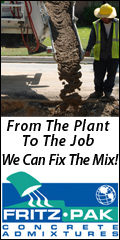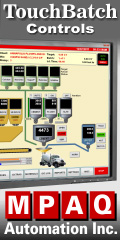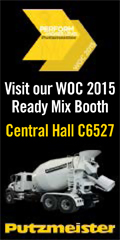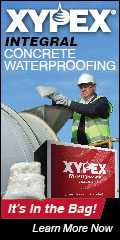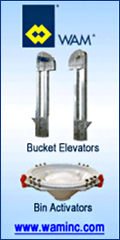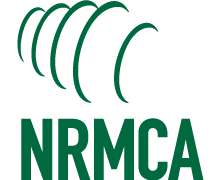
| Archive | nrmca.org | E-Store | Conferences & Events | Certifications | InFocus | Membership Directory |
NRMCA Reports on ACI 2014 Fall Convention The ACI Fall Convention in Washington, DC, was held during the week of October 26, 2014. Below is an update of some of activities that involved NRMCA representation.
NRMCA Staff Presentations:
NRMCA’s Karthik Obla presented on the topic "Using the Maturity Method for High Volume Fly Ash Concrete" in a technical session. Obla also presented the NRMCA SCM survey and P2P survey during the Fly Ash Committee and Performance Criteria Committee meetings, respectively. Colin Lobo presented on the precision of strength tests and specimen size effect. He described the variation of strength test results in a Washington, DC-area strength round robin testing program and the impact of applying a penalty to measured strengths in some specifications when tests are performed using 4 x 8 inch cylinders.
130 – Sustainability Committee - Lionel Lemay maintains NRMCA representation on ACI 130. The main focus of the committee is to develop a guide to concrete sustainability. The committee balloted and resolved most negatives for the production and constructions chapters, but continues to struggle with other chapters of the guide to concrete sustainability. NRMCA’s Karthik Obla worked on the materials chapter draft but many special interests, mostly material manufacturers, continue to introduce self serving commentary in the guide. The committee will continue to struggle with finalizing the guide and likely it will be outdated when published due to the quickly changing green building and sustainability movements. Lemay will continue to monitor this committee to ensure ready mixed concrete’s interests are maintained and performance specifications and life cycle assessment, including work at MIT, are properly described and acknowledged.
132 – Responsibilities in Concrete Construction - ACI 132 has completed a document that discusses the responsibilities of all stakeholders on a concrete construction project. The stakeholders include the owner, licensed design professional, general contractor, design builder, subcontractor, specialty engineers and subcontractors (those with some design responsibility), concrete material supplier, testing agency, construction manager and forensic consultant. It discusses associated responsibility with prescriptive and performance specifications. The ACI 132 document should be available from ACI early in 2015. Colin Lobo maintains representation on ACI 132.
201 – Durability - The 201.2R Guide to Durable Concrete is being revised. All chapters have been completed – negatives to the chapter on physical salt attack chapter were resolved. NRMCA has provided input to this document. A task group (TG) is working on a tech note for recommendations for physical salt attack. Recent NRMCA research findings were presented to this TG; a new rapid test for physical salt attack is being developed. Future sessions are planned on the following: 1. Performance Tests are Criteria for Sulfate Attack; 2. Chloride Limits and Thresholds. Karthik Obla maintains representation on ACI 201.
211 – Mixture Proportioning - Changes in response to ACI Technical Activities Committee (TAC) comments were made on two new documents on mixture adjustments and mixture proportioning with ground limestone powder and mineral fillers. NRMCA provided input to both documents. A TG working on assessing aggregate gradings issued a ballot and NRMCA provided input to the document based on past research conducted at the NRMCA Research Laboratory. The main 211 proportioning document is being revised with input from NRMCA. An electronic document (E-doc) on Aggregate Suspension Mixture Proportioning method has been approved and will be published soon. Karthik Obla maintains representation on ACI 211.
214 – Strength Tests - The committee plans to update the report with information on percent within limits concepts that are being used by some DOTs for allocating incentives and penalties. The committee discussed if it was worthwhile to develop a strength factor while testing cubes so that strengths between cylinder and (concrete) cube tests can be compared. Karthik Obla is an associate member.
232 – Fly Ash - The committee has published a new report on high volume fly ash (HVFA) concrete and an ACI Webinar is planned on this topic soon. The committee is working on a new document titled Guide to Specifying Fly Ash for Concrete Performance. The committee has balloted once the revisions to the TAC suggestions on ACI 232.2R, Use of Fly Ash in Concrete. The committee co-sponsored two sessions on Improving Early-Age Properties of Concrete with SCM’s. Karthik Obla is the Chair of ACI 232.
240 – Natural Pozzolans - This is a new committee created from ACI 232 due to the new focus on natural pozzolans. A joint TG between this committee and the Durability Committee has been formed to study if the existing durability test methods will apply for natural pozzolans and to develop a state of the art document and identify needed research.
301 – Specifications for Structural Concrete - ACI Committee 301 devoted 20 hours of meeting time addressing about 700 comments on the revised specification from TAC. It is anticipated that the revised ACI 301 will be available for public review in the January – March time frame. Following response to public comments, it is anticipated that ACI 301 will be published in Summer 2015. Some of the changes in ACI 318-14 will be included in the next version of ACI 301, time permitting. A new committee will be formed after the completion of this version of the specification. Colin Lobo maintains representation on ACI 301.
318 – Building Code for Structural Concrete - ACI 318-14 was released at the convention. The reorganized code is being touted as being structured for improved ease of use by practicing designers. However, it will take some time before practicing engineers become familiar with the new code. It was noted that copies of the first printing of 318-14 were exhausted. Some changes related to concrete materials – requirements for concrete are addressed in Chapter 19. There are some revisions to the durability requirements. A new Chapter 26 collects all provisions that the designer needs to include in construction documents. This chapter was developed to collect all construction-related code items. The premise is that the contractor should not be responsible for code provisions and these requirements need to be included in a specification for a project.
With the publishing of ACI 318-14, the previous committee has been disbanded. The new ACI Committee 318 had its initial meetings at this convention. The committee is chaired by Jack Moehle, UC Berkeley. This code cycle will conclude with the publishing of ACI 318 in 2019 to be referenced in the International Building Code of 2020.
Terry Holland will continue to chair ACI 318 Subcommittee A that is responsible for Chapters 19 and 26. Several code change items were identified – these represent unfinished business from the previous cycles and new initiatives. Colin Lobo will continue as a member of ACI 318.
325 – Concrete Pavements - NRMCA’s Brian Killingsworth maintains representation on ACI 325 on concrete pavements. The committee currently has six documents under development or revision. The report ACI 325.9R Guide for Construction of Concrete Pavements has been completely revised and the committee is currently responding to ACI staff editorial comments. The committee is also rewriting ACI 325.12R-02 (Reapproved 2014): Guide for Design of Jointed Concrete Pavements for Streets and Local Roads and is being be lead by Killingsworth. The committee is developing ACI 325.XR Report on Precast Concrete Pavements - State of the Practice which is based upon work completed by Tayabji for SHRP2. The committee is also developing ACI 325.YR Proportioning, Quality Control and Evaluation of Concrete Pavement Strength Relationships. The document is complete and is being prepared for publishing by ACI. A revision is underway of 325.11R Accelerated Techniques for Concrete Paving. Work is nearly complete and will be balloted in the next few months. Work is also underway to update 325.ZR: Design and Construction of Continuously Reinforced Concrete Pavements over the next year. Killingsworth will ensure that considerations for streets and local roads will be included in all documents.
327 – Roller-Compacted Concrete Pavements - Killingsworth maintains representation on this committee. Current activities include resolving final TAC comments on the report ACI 327.XR Report on Roller-Compacted Concrete Pavements. The committee has also initiated development of an RCC specification for materials and construction to supplement report 327.XR.
329 – Performance Criteria for Ready Mixed Concrete - ACI Committee 329 has completed its guide document on performance requirements for concrete materials. ACI 329R should be available from ACI in early 2015. The committee has created an outline to develop a document on "guide to developing a performance specification" and has assigned members the task of writing different sections. The document is intended to provide some general background and rationale and recommend specification clauses. The committee also decided to follow the sequence used in the MasterSpec format that design engineers are most familiar with. In parallel, there were discussions on developing an ACI Webinar on the new 329 report. Another goal of the committee is to make recommendations to ACI standards committees 301 and 318, suggesting performance based alternatives to current requirements. Colin Lobo (secretary) and Karthik Obla maintain representation on Committee 329.
330 – Parking Lots - The ACI 330 Committee is completing the ACI 330X Guide to Design and Construction of Industrial Pavements. The task group spent considerable time discussing comments received from the Technical Action Committee. The group also spent considerable time discussing harmonizing the ACI 330 and 330X documents. A subcommittee offered recommendations to the committee on the separation criteria between the two documents and the situations in which each document should be used. A discussion was also held about updating the ACI 330.8R document and which portions should be revised. Corey Zollinger also presented on the RMC Research & Education Foundation reports covering erosion analysis and lab testing. NRMCA's Amy Miller maintains representation on Committee 330.
ACI 332 – Residential Concrete - Lionel Lemay represents NRMCA on the residential committee. The current focus of the committee is to revise the guide to residential concrete to more closely match the new 2014 residential building code provisions. Lemay, who chairs the subcommittee on materials, production and delivery, revised the section in the guide and balloted the section to the main committee. The subcommittee resolved negatives and will re-ballot the section in the spring of 2015. 555 – Recycled Materials - The document Removal and Reuse of Hardened Concrete is undergoing revisions and will include discussions on crushed returned concrete aggregates based on research work conducted at the NRMCA Research Laboratory. The committee continues to organize many technical sessions on the use of recycled materials in concrete at each ACI convention; these sessions are very well attended which underscores the importance of this topic. A paper on the use of crushed concrete aggregate for internal curing based on research conducted at the NRMCA Research Laboratory was presented. Karthik Obla maintains representation on ACI 555.
601B – Concrete Quality Technical Manager Certification - ACI has developed a new Concrete Quality Technical Manager (CQTM) certification program. It is intended that to work as a special inspector at any nuclear facilities construction project, individuals will need to be certified as a Concrete Construction Special Inspector (CCSI) and CQTM. The CQTM program measures the technical knowledge of a candidate in regard to mixture proportioning for normal, heavy and lightweight concretes, high strength concrete, durability issues, ingredient materials for concrete, evaluation of strength, CLSM, SCC, pervious concrete and Building Code requirements related to concrete materials. The text for the exam comprises of the reports of over 20 technical committees. A pilot examination was held in Reno on March 26. The pilot exam comprised of a written and performance exam and lasted a total of 6 hours. NRMCA’s Karthik Obla took the pilot examination and passed it.
For more information, contact Karthik Obla at kobla@nrmca.org, Colin Lobo at clobo@nrmca.org, Lionel Lemay at llemay@nrmca.org, Brian Killingsworth at bkillingsworth@nrmca.org or Amy Miller at amiller@nrmca.org. |
|
|
